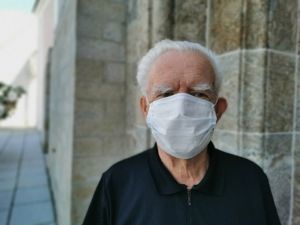News
Rising number of COVID infections in nursing homes
This article is more than 3 years old.
In just one week, the number of cases in nursing homes doubled, leading advocacy organisations such as Ældresagen to call for an immediate rollout of the fourth vaccine dose

The elderly remain vulnerable to the COVID-19 virus (photo: Pixabay)
A new wave of COVID-19 infections has hit Denmark’s nursing homes.
According to the Statens Serum Institut, there were 262 confirmed infections among the country’s nursing home residents last week – up more than double from the week before.
In response, Ældresagen, a non-profit association that works to improve conditions for the elderly, has urged the govenrment to administer booster doses of the COVID-19 vaccine immediately.
“Winter will be the most severe period and we must ensure that the elderly are able to complete their booster shots before then, rather than waiting for the number of infections to rise,” said Michael Teit Nielsen, deputy director of Ældresagen, in an interview with DR.
Urgent need for booster vaccines
Despite the rising infection – and the pleas ofÆldresagen – the Danish government has not announced plans to move up the rollout of the fourth jab, which is currently set to be administered to the elderly on September 15.
As it stands, the Health Minister’s stated ambition to leave the pandemic in past by the end of 2022 may be difficult to achieve.
Spokespeople from several parties, for example, have harshly denounced the government for the continued impact of COVID-19 on waiting times. According to TV2, the waiting time for a heart ryythm disorder at Aarhus University Hospital is currently 83 weeks – the average wait time before the pandemic was four weeks.
Furthermore, the World Health Organization has warned that “a challenging autumn and a challenging winter” is on the way, reporting that decreased awareness of the pandemic has caused cases to rise again.






































